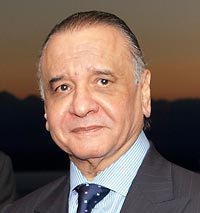
Seattle Times | June 1, 2009
by Kristi Heim
To overcome shortages of farmland or water at home, a few wealthy countries are turning to buying or leasing land in Africa to produce their food.
Saudi Arabia, for example, has started farming in Ethiopia, where it recently brought in its first 2,000 tons of Basmati rice.
Not only has the rice been grown successfully in Ethiopia, he said, but it's also cheaper to produce there than it is in India, he said.
It's all part of a drive by the desert kingdom to make agricultural investments abroad, which Alireza is spearheading. The Saudi government is investing in Ethiopia, Uganda and Tanzania, countries chosen for their close proximity to Saudi Arabia and abundant water supply, Alireza said. But competition for water is already causing conflicts in Ethiopia, and like many countries in Africa, it struggles to produce enough food for itself.
The three countries would make up a new agricultural export zone. "If we can string them along we can actually begin to create a whole area built for agriculture," Alireza said.
The Economist reports that nearly 50 million acres of African farmland worth $20 billion to $30 billion has been acquired by China, Saudi Arabia and other countries for offshore farming. Critics call it the newest form of colonialism and say the deals are destabilizing land grabs that push out local farmers.
Others say that after decades of neglect and failure by international aid organizations to improve the situation, commercial investment might actually help.
The Gates Foundation-supported Alliance for a Green Revolution in Africa (AGRA) aims to reduce poverty using market-based approaches and improving things like seeds, soil and irrigation for small-scale African farmers. The Rural Development Institute focuses on stronger legal rights for African farmers, most of whom are women.
The way Alireza sees it, the practice of offshore farming can enhance food security in Africa.
"We can become the farmers of the world in terms of food security to Africa," he said. "Although we're taking so many hectares, we are actually going to be helping farmers contiguous to our farms, assist them in repairing the land, plant seedlings, and have an agreement if they wish so that we can buy their products."
Saudi Arabia has slipped from a grain producing nation to a net importer, and water security is a major concern. At the same time, a development push to open six new economic cities and various new industrial zones in Saudi Arabia will consume even more land and water resources.
"We are going to be importing a lot of wheat from all over the world," Alireza said.
After sitting next to Congressman Jim McDermott (D-WA) at the Seattle dinner, Alireza hinted that he might reconsider where to make investments. "He has given me many, many thoughts," Alireza said. "Maybe Seattle might be a better place to come in."












